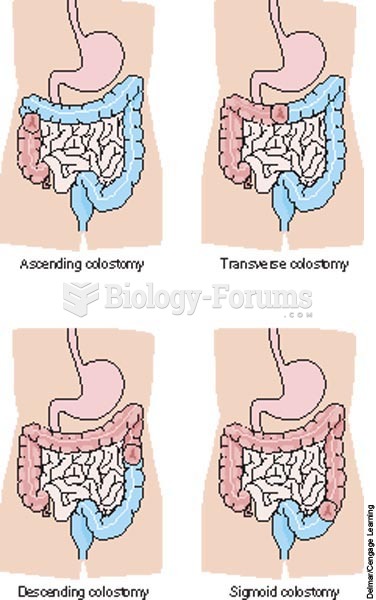|
|
|
Malaria mortality rates are falling. Increased malaria prevention and control measures have greatly improved these rates. Since 2000, malaria mortality rates have fallen globally by 60% among all age groups, and by 65% among children under age 5.
Limit intake of red meat and dairy products made with whole milk. Choose skim milk, low-fat or fat-free dairy products. Limit fried food. Use healthy oils when cooking.
A cataract is a clouding of the eyes' natural lens. As we age, some clouding of the lens may occur. The first sign of a cataract is usually blurry vision. Although glasses and other visual aids may at first help a person with cataracts, surgery may become inevitable. Cataract surgery is very successful in restoring vision, and it is the most frequently performed surgery in the United States.
The average older adult in the United States takes five prescription drugs per day. Half of these drugs contain a sedative. Alcohol should therefore be avoided by most senior citizens because of the dangerous interactions between alcohol and sedatives.
The FDA recognizes 118 routes of administration.
 When introduced into a new area, rabbits can overpopulate rapidly, becoming a nuisance, as on this u
When introduced into a new area, rabbits can overpopulate rapidly, becoming a nuisance, as on this u
 Whenever a vehicle is raised off the ground, a safety stand should be placed under the frame, axle, ...
Whenever a vehicle is raised off the ground, a safety stand should be placed under the frame, axle, ...





